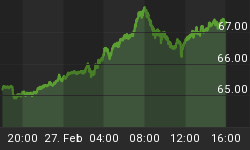Now that home mortgage defaults are spreading like wildfire from coast to coast, there is a growing sense of certainty that the government will attempt to bail out homeowners and lenders. The ideas put forward last week by President Bush may be the camel's nose pushing under the bottom of the tent. However, just as some things are too big to fail, this problem is far too big to fix.
First of all, one has to consider the moral hazards inherent in any bailout. Immediate relief in the form of debt reductions and more favorable loan terms will create a powerful incentive to default. Why would anyone stretch to make a burdensome mortgage payment while others are being rewarded for failing to make theirs?
Even without the incentives of a government bailout luring more people into default, policy makers simply have no idea as to the scope of the problem. Before this home mortgage correction runs its course, nearly every homeowner in the country who had availed themselves of an adjustable rate mortgage or a home equity loan will be in need of a bailout. Even a sizable percentage of those with traditional fixed rate mortgages will find themselves in danger. With millions, or perhaps tens of millions, of home owners on the rocks, there is simply no way the government can structure a bailout without bankrupting the country or destroying the currency.
Bailout or not, the economy will still be in a prolonged and severe recession. Even if Federal aid prevents millions of foreclosures from happening, all of the home equity accumulated during the bubble years will be gone. Debt reduction and restructuring will not stop home prices from falling, and will not make homes easier to sell. After all, those looking to buy homes will no longer have access to the easy credit that made bubble prices possible in the first place. Home prices are a function of what future buyers can afford - not what past buyers paid. If new buyers are required to make 20% down payments, fully document their income, and fully amortize a fixed rate mortgage, they will not be able to pay nearly as much as what current owners paid during the bubble.
On the low end, any comprehensive government bailout would easily surpass the $1 trillion mark. Where will the Federal government get the money, particularly during a severe recession? My guess is raising taxes will be out of the question. If people are having trouble making their mortgage payments now, significant tax increases will only make it that much more difficult. Borrowing the money also seems like a difficult task, as our minimal domestic savings means we will have to do so from abroad. Given that the budget deficit will likely be exploding as a result of the recession, foreigners are not likely to foot the bill. If they do, it will require significantly higher interest rates, which will only compound the mortgage rate problems for current and potential homebuyers.
Unfortunately, the only realistic way to "pay" for such a massive bailout would be for the Fed to monetize it. If that were to happen, the value of the dollar would plunge, and consumer prices would go through the roof. Now that the dollar Index has finally broken below the key 80 support level, an event that I have been forecasting would eventually occur for years, a run on the greenback may already be in motion. Ultimately, long-term interest rates will soar as a result, and we will experience unprecedented stagflation and a substantial decline in our collective standard of living. This week's serge in the price of gold, which traded above $700 per ounce for the first time since May of 2006, reveals that some investors are finally beginning to figure this out.
Ironically, in a recession induced by the burst housing bubble, housing itself will not be among our most pressing problems. One of the few "benefits" of the housing bubble is that we now have a lot of houses, many of them vacant. Therefore, few former American mortgage holders will go homeless. However, the real problems for Americans, whether they own or rent their homes, will be maintenance costs (heating oil, electricity, etc.) and keeping their kitchens stocked with food. One thing is for sure: homeowners will certainly not be buying new furniture for their living rooms, big screen TV's for their media rooms, granite counter tops for their kitchens, or new cars for their garages.
The costs associated with the housing bubble will be huge. However, the price tag for a government bailout designed to prevent it from deflating will be much higher. Even those who get "bailed out" will ultimately be in worse shape as a result. Let's hope that cooler heads prevail and that the rest of the camel never makes it into the tent. However, just in case they don't, make sure to get rid of any remaining dollar denominated assets before it's too late.
For a more in depth analysis of the tenuous position of the American economy, the housing and mortgage markets, and U.S. dollar denominated investments, read my new book "Crash Proof: How to Profit from the Coming Economic Collapse." Click here to order a copy today.
More importantly take action to protect your wealth and preserve your purchasing power before it's too late. Discover the best way to buy gold at www.goldyoucanfold.com, download my free research report on the powerful case for investing in foreign equities available at www.researchreportone.com, and subscribe to my free, on-line investment newsletter at http://www.europac.net/newsletter/newsletter.asp.















